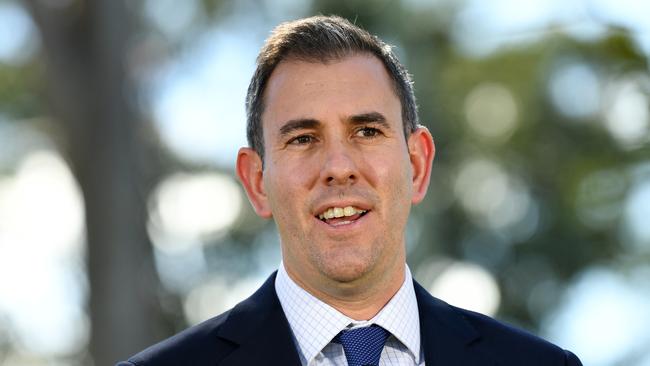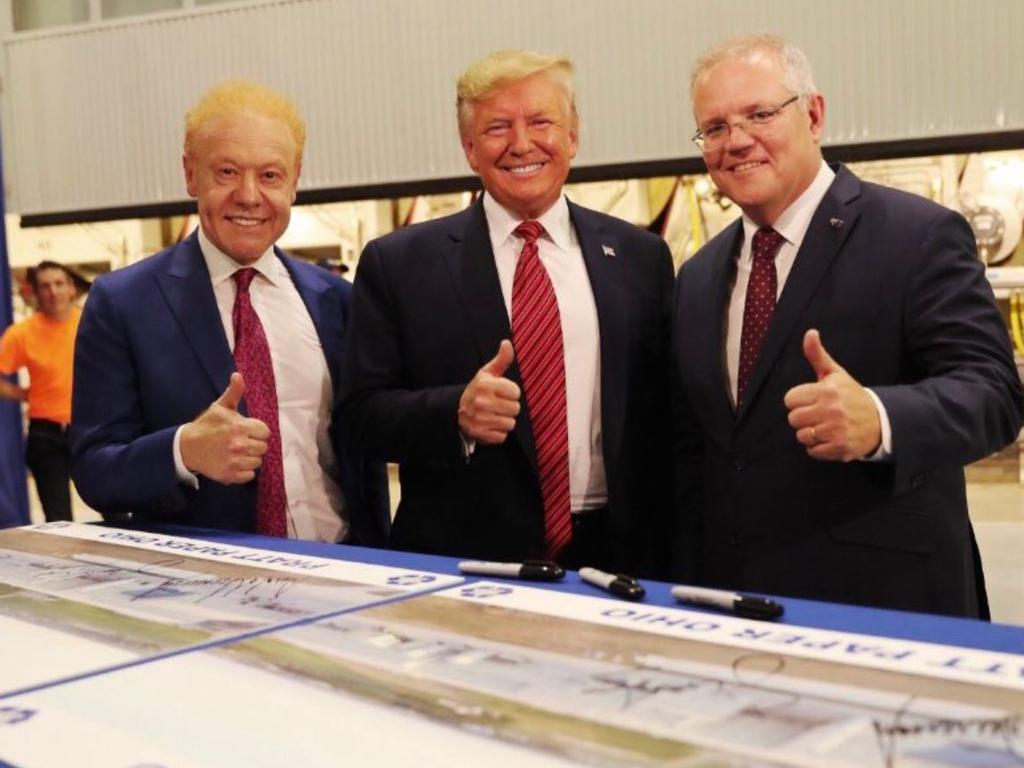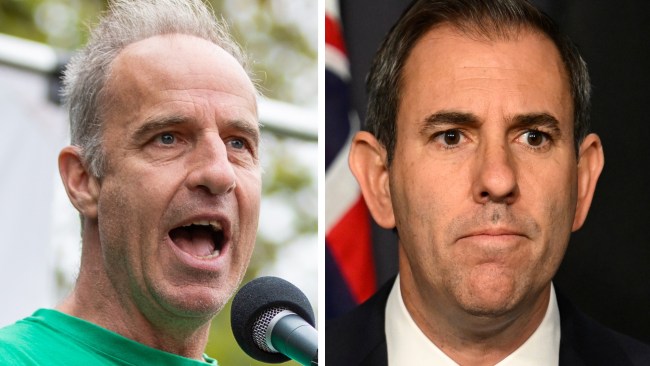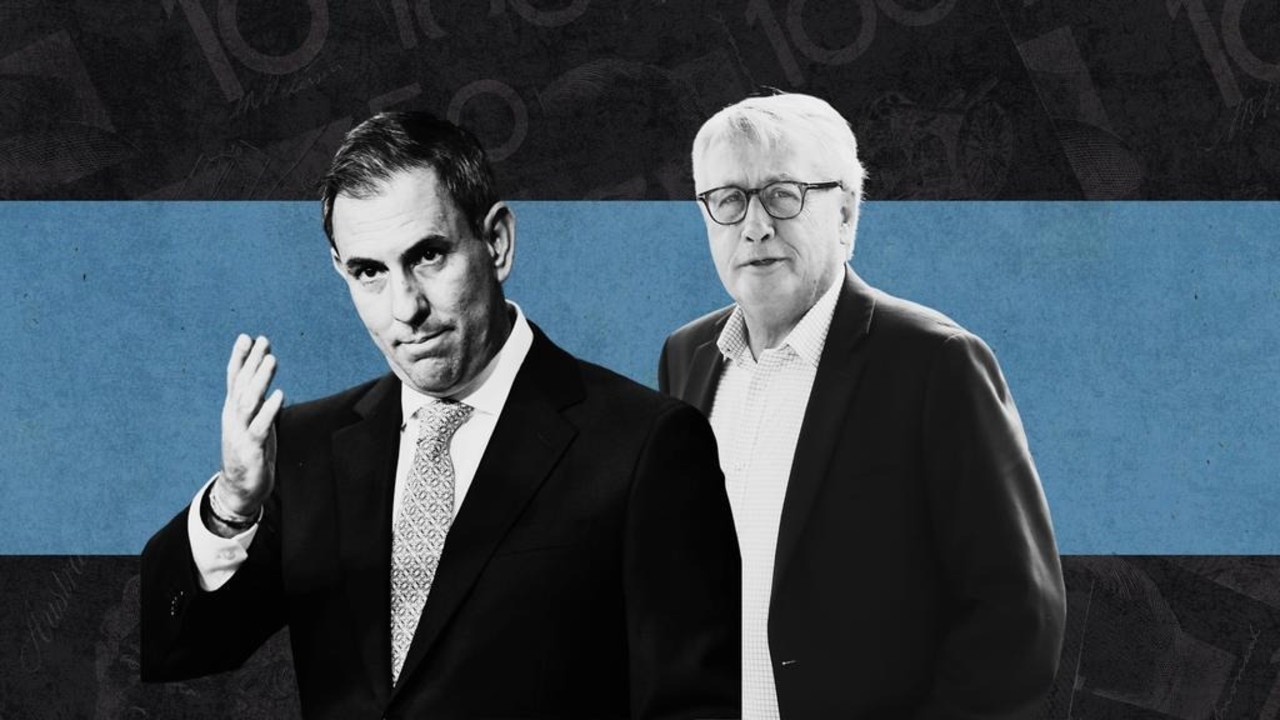ALP must seize sensible centre, says Chalmers
Jim Chalmers will urge Labor to move back to the centre ground of politics.

Labor Treasury spokesman Jim Chalmers will urge the party to move back to the centre ground of politics and prize aspiration, opportunity and growth so it can remain a viable political force, in a landmark speech on Saturday night.
In the annual Light on the Hill address in Bathurst, west of Sydney, Dr Chalmers will argue that Labor must learn the lessons of its election defeat and not take the same suite of policies to the next election, conceding that the party lost critical support from the “middle ground” of politics around Australia.
“We need to listen to the message we were sent, and learn from the result,” he will say. “We won’t win in 2022 by recontesting and re-prosecuting the 2019 election.
“Clearly, we won’t take an identical set of policies to the next election as we took to the last. We need to look ahead.
“We took an ambitious program to the last election and we fought hard for it. But we weren’t able to build a big enough constituency behind that agenda to win. We mostly lost among middle-ground voters, not middle-income voters. People in outer suburban communities like mine, around Australia.”
Dr Chalmers will warn Labor not to succumb to populism in a not-so-subtle rejection of the fringe socialism advocated by British Labour leader Jeremy Corbyn and US Democratic presidential candidate Bernie Sanders, who both have support among Australian Labor MPs, officials and staff.
“To win (voters) back, we need to acknowledge that we won’t beat populism of the right with populism of the left, especially not with warmed-up nostalgia for the 1970s, or even for the 90s for that matter, but with something new and different,” he will say.
The annual Light on the Hill address in honour of former Labor prime minister Ben Chifley is delivered in his hometown, and is seen as a rite of passage for the party’s future leaders. Anthony Albanese and Bill Shorten have delivered the speech in recent years, as did former prime ministers Julia Gillard, Kevin Rudd, Paul Keating, Bob Hawke and Gough Whitlam before them.
Dr Chalmers’s frank, forward-looking speech, which argues that Labor cannot adopt a “back to the future” approach, comes amid division over which policies to jettison or keep. He will not be commenting on specific policies now being reviewed.
Labor’s post-election review, led by Jay Weatherill and Craig Emerson, has been delayed and is causing consternation in Labor ranks about what it might recommend and where it will apportion blame for the May election defeat.
In the speech, Dr Chalmers says that decay in the established “global economic order” has undermined prosperity and stability, and accelerated inequality. The “reactionary right” has benefited by appealing to populism, nationalism and isolationism while the “progressive left” has struggled.
Labor’s mission must be to “find a place for people” during an “inflection point” in politics, economics and society.
“Big transitions are always accompanied by big, defining anxieties,” he says. “Perhaps the overarching anxiety is declining faith that our politics and economics work for middle Australia.”
Dr Chalmers says Labor must understand the importance of business in creating jobs and growth, and also recognise the need for budget responsibility.
The party must focus on growth rather than redistribution. “Re-establishing our growth credentials is part of reclaiming Labor’s rightful place as the party of aspiration and opportunity,” Dr Chalmers says.
Labor must also think about the role of government, he suggests, including improving the “quality and efficiency” of public services, using technology to lift productivity and improve health and education outcomes, and identify ways to give voters more “power” and “control” over their data and digital footprint.
Dr Chalmers praises Chifley, who served as treasurer (1941-49) and prime minister (1945-49), as an economic reformer who laid the building blocks for Australia’s engagement in the global economy by supporting what became the IMF, the World Bank and the WTO.
“(Chifley) recognised that Australia was a relatively small economy, one with large rural industries that depended on exports. He knew Australia was part of the global economy and wanted to make the most of it.
“There’s a great tradition of Labor’s role in making rules for the global economy, in creating a global consensus favourable to trade, investment and global prosperity, based on widely accepted rules applying to all the participants, great and small.”





To join the conversation, please log in. Don't have an account? Register
Join the conversation, you are commenting as Logout